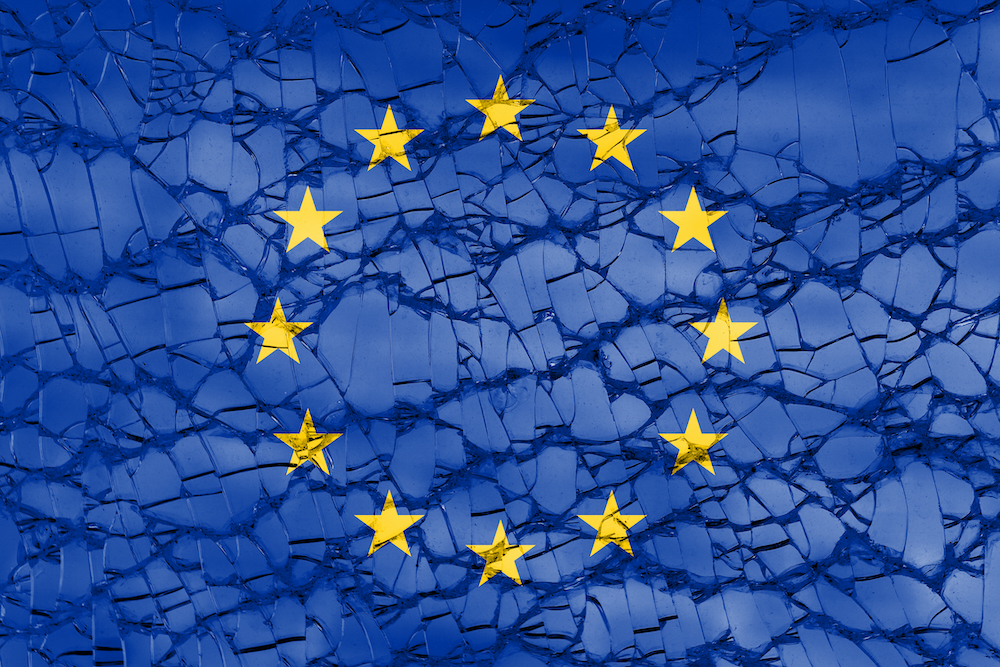
-
Published: 17 April 2023

In a move that represents a challenge to the European Union, Slovakia joined Poland and Hungary, which on Saturday announced a ban on Ukrainian food imports until June 30 .
The challenge is that the EU countries are working to help Ukraine transport its grain to world markets.
The move came in response to growing anger from farmers who say that the abundance of grain in their countries is causing them economic difficulties.
Edited by| Christian Megan
Economy section - CJ journalist
April,17,2023 - Brussels
The EU’s executive branch, the European Commission, manages trade on behalf of the 27 member countries and objects to them taking unilateral or uncoordinated measures.
At a briefing in Brussels, two spokespeople stressed gratitude to Poland and other Central European countries for supporting Ukraine but said a solution must be found that respects the EU legal framework.
“We are dealing with war, right? And this war has consequences, obviously, on farmers and more generally, the population in Ukraine and the European Union and its member states,” said Eric Mamer, chief spokesperson.
He acknowledged that Poland and other countries “have been doing their utmost in order to help Ukraine, adding: “So this is not about sanctioning. This is about finding solutions based on EU law in the interests at the same time of the Ukrainians and of the EU.”
EU countries that neighbor Ukraine have asked the EU to treat the matter of Ukrainian food with urgency, saying they can’t allow their own farmers to bear the cost of disruption that Ukrainian agriculture products are causing to their markets.
A delegation of Ukrainian officials visited Warsaw on Monday for government consultations on the issue. Poland faces an election in the fall and farmer groups have been protesting to urge action.
Hungary’s agriculture minister, Istvan Nagy, said the surge in Ukrainian products on European markets had made it impossible for Hungarian farmers to remain competitive.
Nagy also said low production costs in Ukraine, owing to practices being used that are not permitted in EU countries, had allowed Ukraine to export large quantities of poultry, eggs, and honey to the European market, driving costs down to unsustainable levels.
The Slovak Agriculture Ministry announced last week that tests of 1,500 tons of grain from Ukraine in one mill in Slovakia revealed it contained a pesticide banned in the EU. As a result, the Slovak authorities decided to test all Ukrainian grain in the country and temporarily banned its processing.
Its ban will affect imports of grain and also some other food, including sugar, hops, flax, hemp, fruits and vegetables, and products made of them, vine, honey, and honey products. Slovak Agriculture Minister Samuel Vlcan said the ban that takes effect Tuesday will remain in place until further notice and doesn’t apply for transit.
Ukraine and Russia are both major global suppliers of wheat, barley, sunflower oil, and other affordable food products that developing nations depend on. The war upended those supplies to Africa, the Middle East, and parts of Asia where people were already going hungry and helped push millions more people into poverty or food insecurity.
Ian Mitchell, an economist and London-based co-director of the Europe program at the Center for Global Development, said it’s unusual for EU member states to “take unilateral trade action.”
Mitchell, who specializes in agriculture and trade, argued that the move undermines the solidarity of the EU and shows the power of farmers’ voices in politics. He described it as an attempt to get the EU to provide more support for the agricultural industry, even though aid is already generous for farmers in Eastern and Central Europe.
“If you’re a consumer in Hungary, Slovakia, or Poland, then effectively the government has just ensured that you’re going to be paying a higher price for your food,” Mitchell said. “The balance of the food lobby is so powerful that it can get the government to do that even in a cost-of-living crisis.”
Their bans come as Russia threatens to pull out of the Black Sea deal. Moscow is complaining that a separate agreement to facilitate exports of Russian food and fertilizers amid Western sanctions hasn’t worked.
Global food commodity prices surged to record levels after the invasion of Ukraine and have been falling steadily since, but the food is still expensive for people in many places because of factors like droughts, trade restrictions, and the high cost of buying imported food priced in dollars as some emerging economies’ currencies weaken.
{source}<script async src="https://pagead2.googlesyndication.com/pagead/js/adsbygoogle.js?client=ca-pub-4474625449481215"
crossorigin="anonymous"></script>
<!-- moss test ad -->
<ins class="adsbygoogle"
style="display:block"
data-ad-client="ca-pub-4474625449481215"
data-ad-slot="6499882985"
data-ad-format="auto"
data-full-width-responsive="true"></ins>
<script>
(adsbygoogle = window.adsbygoogle || []).push({});
</script>{/source}
